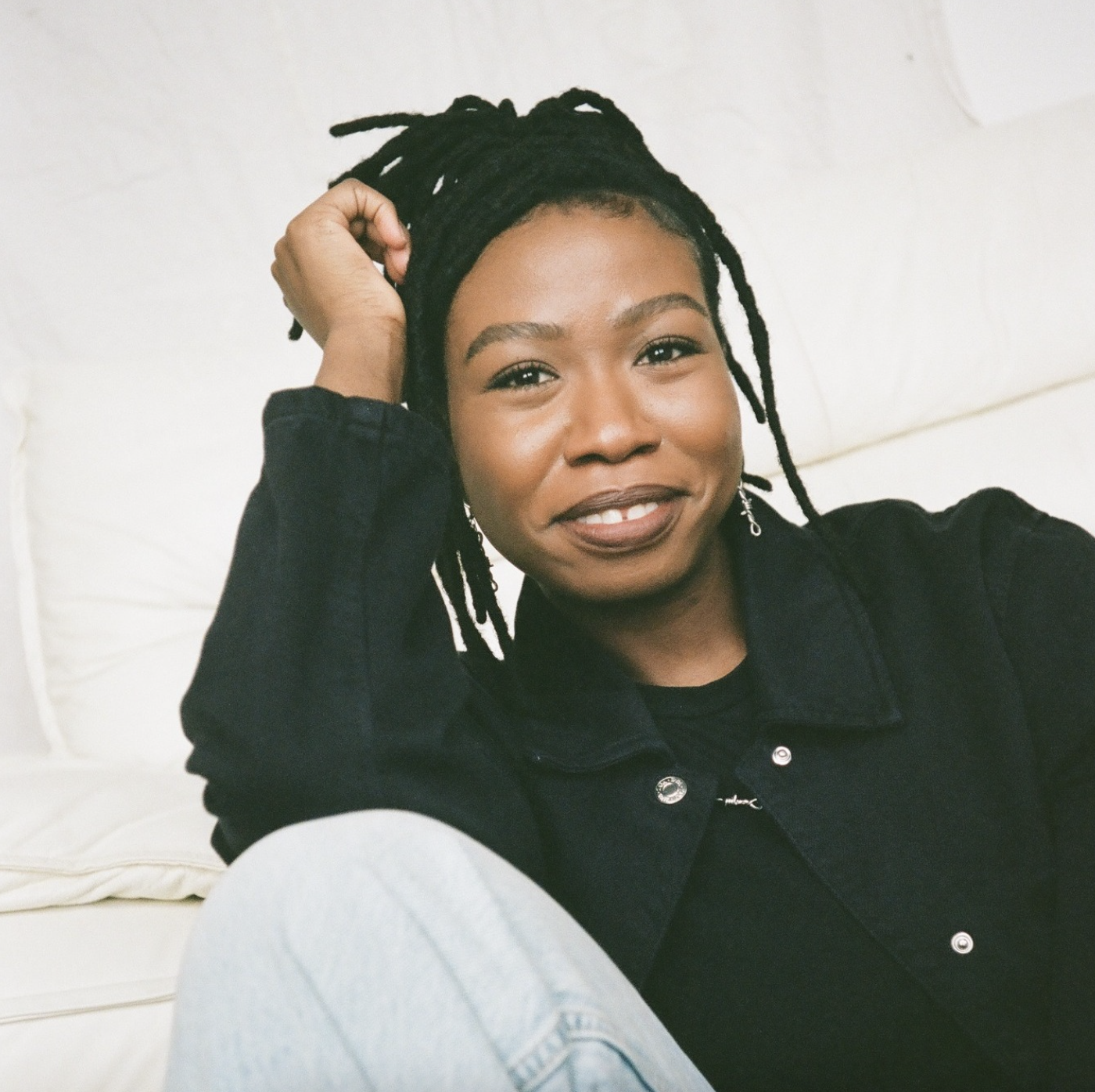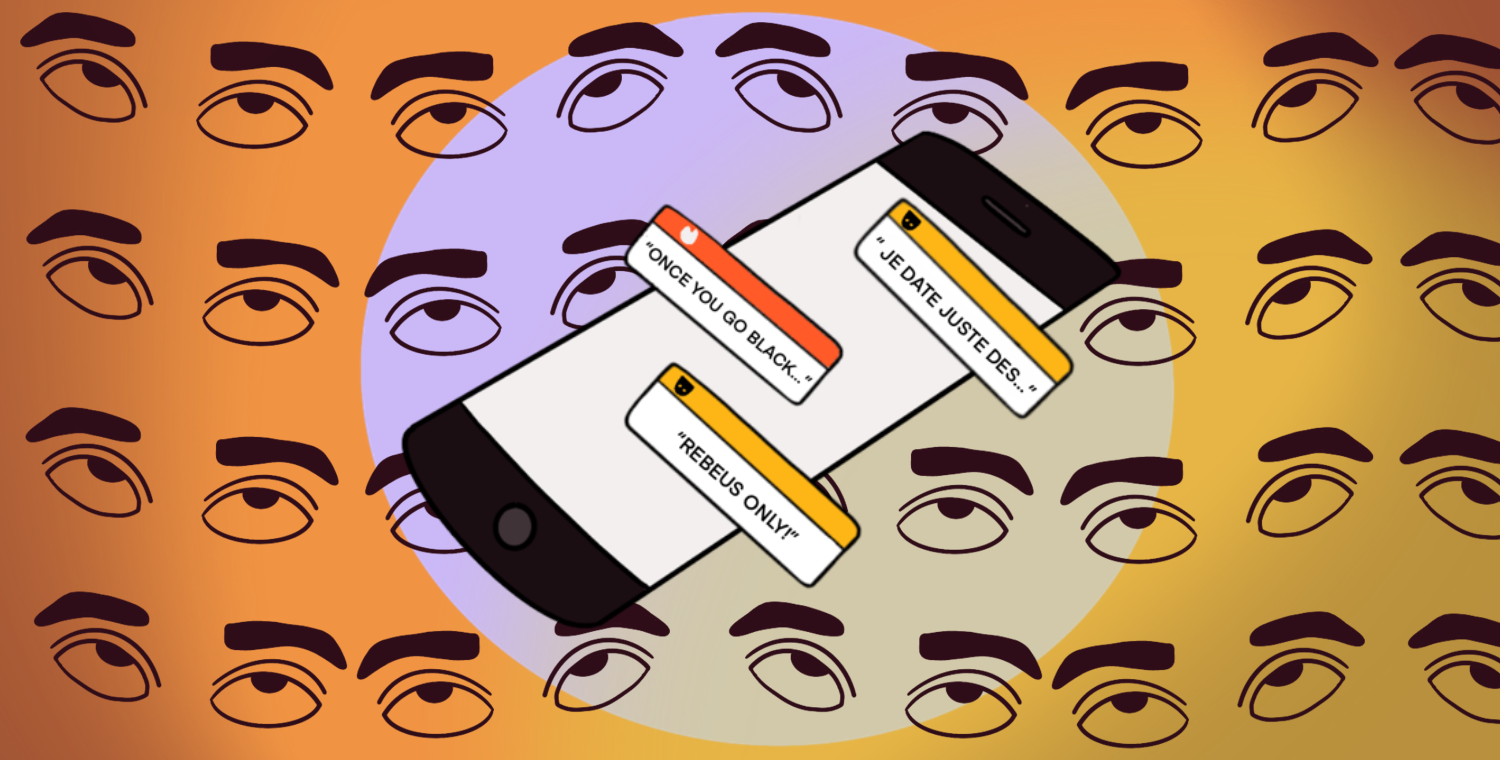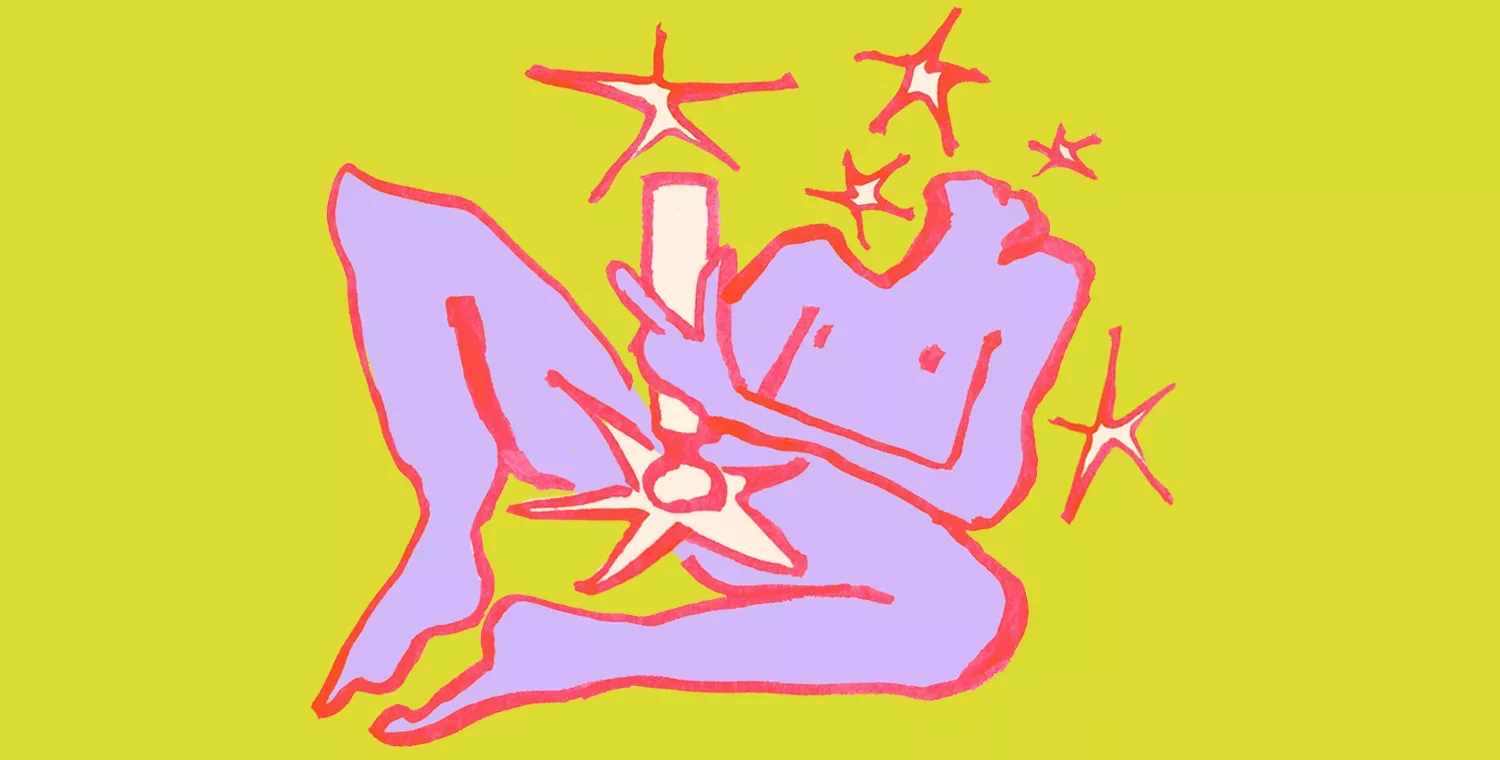Your cart is currently empty!
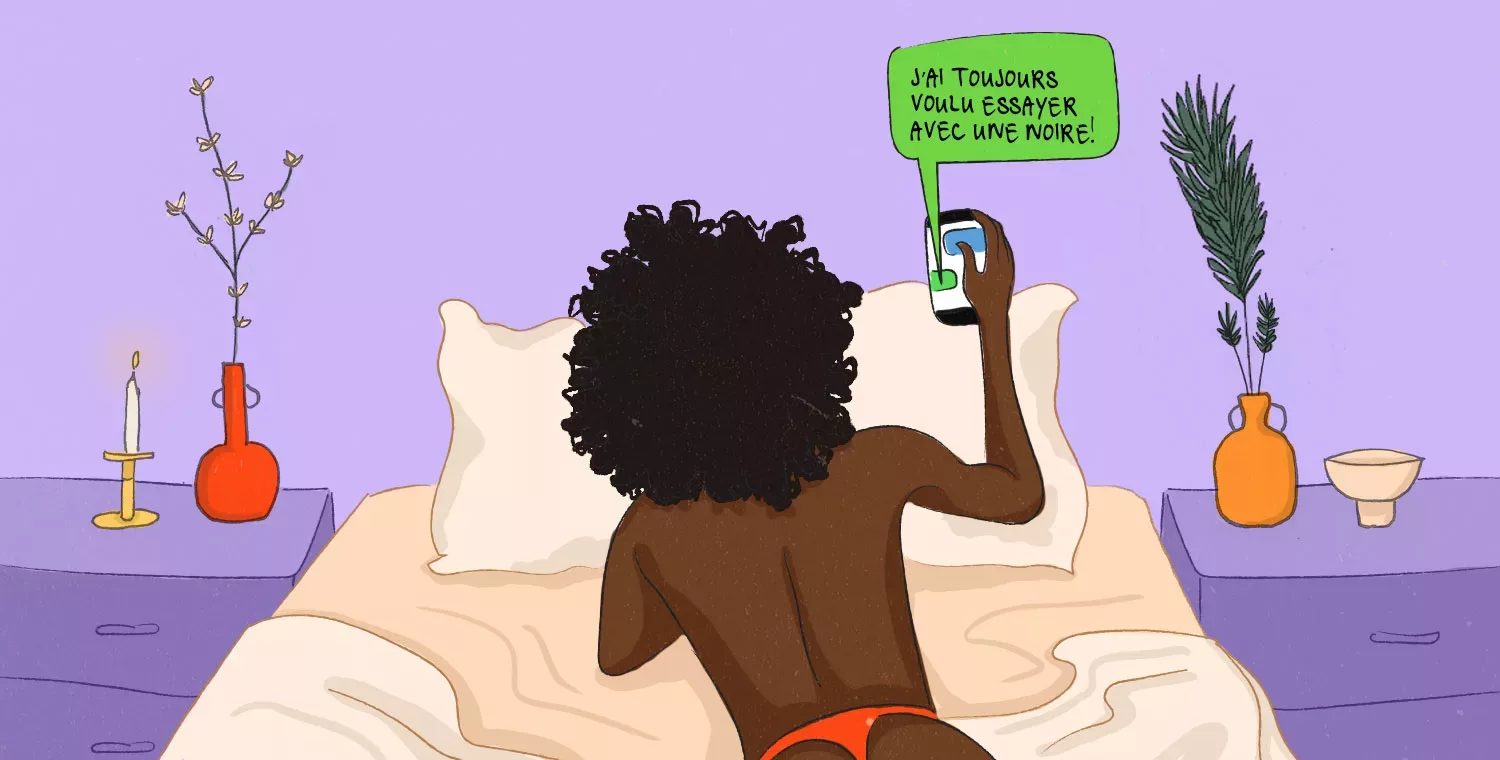
What is Sexual Racism?
TW: Discusses racist and discriminatory remarks
Sexual racism involves preferring and choosing sexual partners based on their race in a way that reinforces racial hierarchies and stereotypes. We all have our own list of criteria when it comes to selecting a partner, but it’s worth questioning where these criteria come from. These sexual preferences are, more often than not, influenced by social constructs and shaped by a general lack of racial and ethnic diversity in social and media representations.
Whether implicit or explicit – even when they’re “positive” – racist comments that are typically said in dating or sexual contexts are dehumanizing and can negatively affect many racialized people’s self-esteem. For instance, it can lead them to feel wanted not for who they are, but for the colour of their skin and, particularly, the sexual stereotypes that are associated with the colour of their skin. As a white person (if that’s you), you can try to identify these (micro)aggressions, acknowledge their impact, and stop conveying them. Let’s learn together to question ourselves and our behaviours and fight against sexual racism.
1. Explicit comments
Using these statements to restrict one’s dating pool is to deny racialized people any individuality, systematically rejecting them because of the stereotypes that are attached to them. It should also be noted that “same culture” does not necessarily mean “same skin color”!
-
“I want to date someone of the same culture as me.”
-
“I’m not interested in dating Black people.”
2. Implicit comments
Constantly feeling that one’s physical characteristics are unwanted or undesirable can obviously affect people of color’s self-esteem. Implicit racist comments also reproduce racist beauty standards. In any case, choosing your partner solely on the basis of their physique is really shallow.
-
“I’m only interested in blond people with blue eyes.”
3. Stereotypes and generalizations
People of color do not all have the same physique. They don’t all look alike. Assuming the presence of certain physical features is once again denying racialized people’s individuality.
-
“They must really like big penises to be dating a Black man.”
-
“I like Black women because they are curvier.”
4. Pointless racial identification
To use race as a subject rather than as an adjective when referring to someone is to assume that people can be defined by their race or that their identity can be summarized solely by their race.
-
“I slept with a Black.”
-
“Do you remember the Arab I dated?”
5. Racial fetishization
Some racial fetishes are so common that expressions have been coined to refer to them, such as “asian fever” and “jungle fever”. Black, Asian, and any other racialized people are not sexual experiences.
-
“I’ve always wanted to try it with a Black person!”
-
“I’ve always had a soft spot for Asians.”
Do my sexual preferences make me a racist?
No!
First off: There are no “racist” and “non-racist” people. It is a mistake to see and categorize people in terms of black and white (no pun intended!). On the other hand, while racism is not an identity, attitudes, gestures, jokes, statements, and comments can definitely be racist.
Racism is defined by one main thing: the oppression of racialized people. The challenge and responsibility is to see this phenomenon, acknowledge it, and rectify it. to see this phenomenon.
Second thing: Everyone has preferences, and that’s okay.
The important thing to keep in mind, however, is that sexual and romantic attraction is not just a biological thing.
In fact, it changes and develops over the course of our lives and is influenced by the messages and stereotypes that are passed on to us by our friends, family, peers, culture, society, and by the media.
Many of these messages paint a particular portrait of racialized people, which leads many individuals to fetishize them or, conversely, to not consider them partner material.
We’re not here to make you feel guilty and we’re not implying that you should force yourself to see someone you’re not attracted to! Rather, we’re inviting you to examine and explore the “WHY” behind your sexual and romantic preferences in order to deconstruct certain stereotypes.
To get the ball rolling in terms of reflections, you can ask yourself:
- Am I interested in this person only because of their ethnicity?
- Am I projecting stereotypes onto them without even knowing them?
- I like this person’s physique and they embody my preferences, but am I basing all of my attraction on their appearance without even taking interest in them as a whole, complex human being?
Yes, but… MY PREFERENCES???
*Facepalm* We hear you. It’s a complex and sensitive topic. While it’s okay to have preferences, there are ways to communicate our attraction (or lack thereof) to someone in a respectful manner.
Some remarks have the effect of objectifying or fetishizing a person or an entire group of people. E.g., “I want to sleep with a Black person; they’re wilder in bed.”
Other remarks convey the message that an entire group is undesirable: E.g., “You’re beautiful for a black woman.”
So what should you do when you’re interested in someone?
- Compliment them on an aspect of their appearance over which they have control (their style, tattoos, etc.), or on a non-sexualized part of their body (their eyes, smile, etc.).
- Compliment them on what makes them “them” (their ambition, resilience, dreams, skills, hobbies, etc.). Obviously, this implies getting to know them at least a little.
- Be direct and tell them that you’re interested or that you find them attractive.
When you’re not interested:
- Be direct and simply say you’re not interested. That’s all!
Why do you use the word “race”? Isn’t that a racist term?
Here’s a very clear answer from one of our followers (we couldn’t have said it better ourselves!):
Biologically, we can’t deny the fact that there is, indeed, only one human species.
But, sociologically, racism constructs categories (races) on which oppression and discrimination are based. To use the terms “races” and “racialized” is to recognize the existence of this social categorization and that the process by which it distinguishes humans gives rise to racism.
To deconstruct “racial” categories, we must first admit that they socially exist.
Statements such as “I don’t see color” are extremely disconnected from reality, and are often made by people who are unaware of the scope of their privilege.
To address a problem and find possible solutions, we first have to see and acknowledge it.
Does being a racialized person who has preferences for “white” features make me a racist person?
Let’s be clear: anti-white racism (or “reverse-racism”) does not exist. On the other hand, colourism is very real.
What is colourism? Pale skin and other physical features commonly associated with white people (like straight hair) have long been considered “ideal” or “preferable” with regards to beauty standards in the West (and elsewhere). Conversely, physical features commonly associated with Black people have long been perceived as “undesirable”.
Many racialized people have internalized these beauty messages, leading them to prefer partners with “white” features (e.g., lighter skin tone). If their features were celebrated and valued as much as “white” features, colourism probably wouldn’t exist.
This celebration could be conveyed notably through better representation of racialized people in positive roles – not only in the media and in sports, but also in political, administrative, and other leadership roles.
Positive discrimination is one way to remedy the lack of representation.
-
In English
- Where We At #02 – Love Isn’t Blind
- Love’s Not Color Blind: Race and Representation in Polyamorous and Other Alternative Communities (Kevin A. Patterson)
- Love Is Not Colorblind (Multiamory Podcast 161)
- A Very Offensive Rom-Com : Should we be hacking our desire to match our values? (Invisibilia)
In French
- L’étrange cas du racisme sexuel (Martin Gibert, Atelier 10)
- «Désolé, je ne m’intéresse pas aux Noirs»: subir le racisme sur les applications de rencontre (Vincent Mousseau, Collaboration spéciale pour HuffPost)
- Les hommes noirs de Montréal qui ont des relations sexuelles avec d’autres hommes et le racisme sexuel : Défis, mécanismes de résilience et pistes d’intervention (Simon Corneau, Lyanna Després, Jessica Caruso et Carlos Idibouo)
- Corps privilégiés, corps repoussés : étude exploratoire du racisme sexuel et de l’exclusion sur le cyberespace de rencontre gai (Khaled Kchouk)
- Vos préférences sexuelles sentent-elles bon le racisme ? (Scarlotta Harlott)
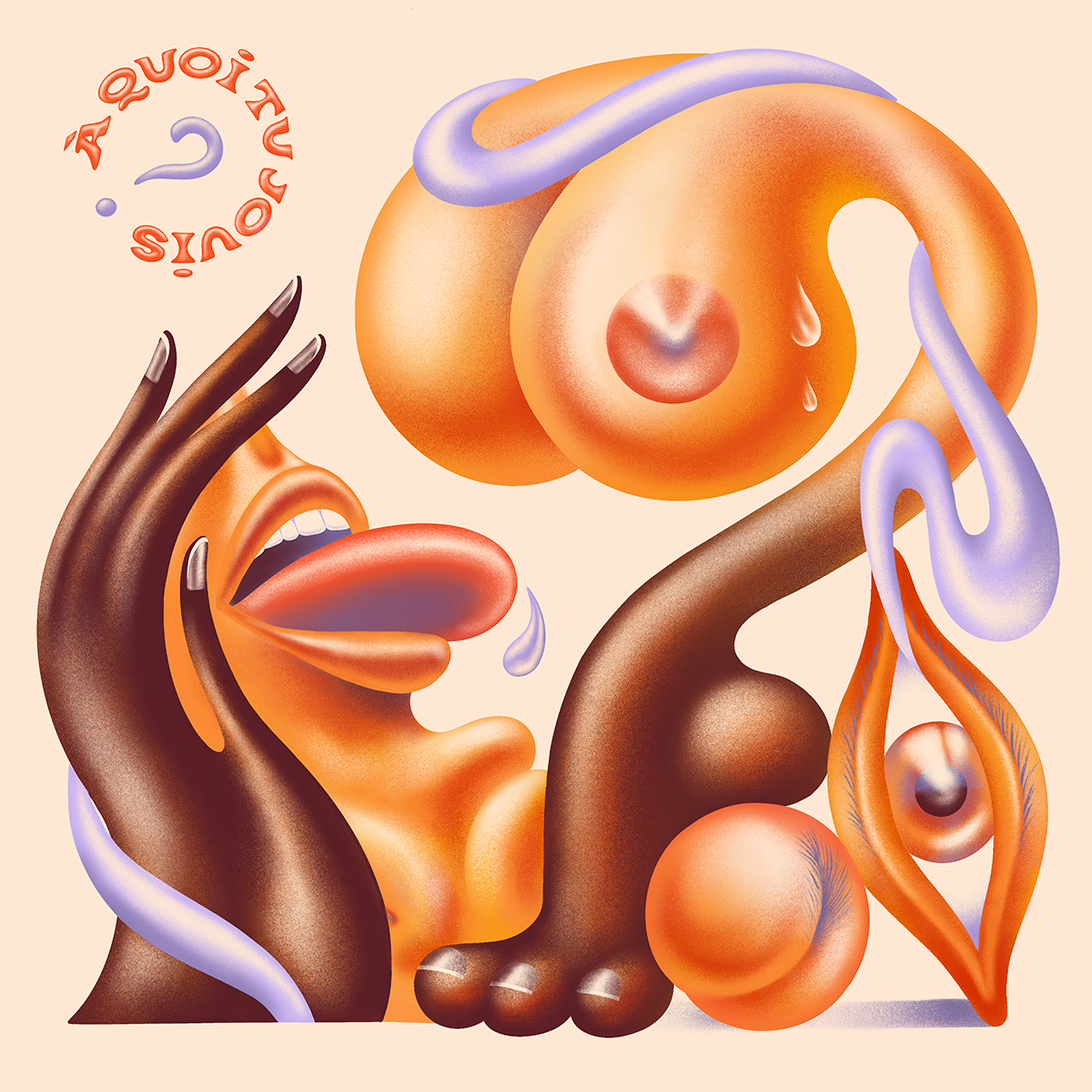
If reading this article has piqued your curiosity, we’ve got two episodes of our podcast, À quoi tu jouis?, that tackle sexual racism and racial fetishization (available in French only).

